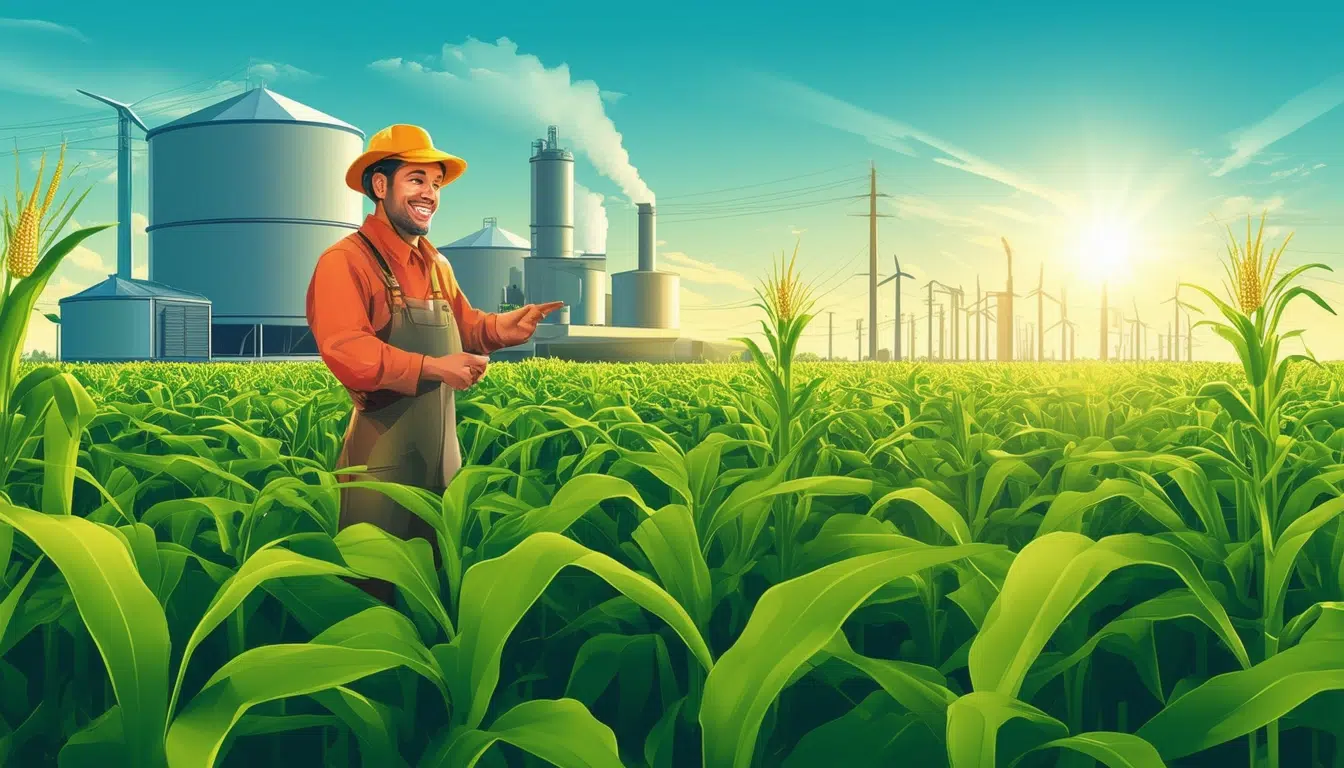The role of biofuels in reducing fuel expenses

In the search for sustainable solutions that contribute to environmental protection, biodiesel fuels emerge as a key alternative in reducing fuel expenses. These fuels derived from organic matter not only provide a more ecological option compared to fossil fuels, but also play a fundamental role in decreasing greenhouse gas emissions. Through various technologies and approaches, biodiesel fuels position themselves as effective tools in the energy transition, helping to mitigate dependency on oil and offering significant economic benefits.
Biodiesel fuels have established themselves as a vital alternative to mitigate fuel expenses, offering sustainable solutions that contribute to the reduction of CO2 emissions. This article examines how these renewable fuels can play a key role in the energy transition, helping to reduce dependence on fossil fuels and optimizing energy performance in various sectors such as transportation.
Advantages of Biodiesel Fuels
One of the main advantages of biodiesel fuels is their ability to minimize pollutant emissions. Being produced from organic matter, their use generates a closed carbon cycle, where the carbon dioxide absorbed during the growth of plants is released during combustion. This characteristic makes them a cleaner option compared to fossil fuels.
Furthermore, biodiesel fuels have the potential to be more economical, especially when produced from organic waste. This not only optimizes the circular economy but also reduces the costs associated with the extraction and processing of conventional fuels.
Types of Biodiesel Fuels and Their Impact on Expenses
There are several types of biodiesel fuels, classified as first, second, and third generation. First-generation biodiesel fuels are produced from food crops, whereas second-generation ones are obtained from non-food materials, such as agricultural waste. Third-generation biodiesel fuels focus on the use of microalgae, which are more efficient and generate less competition with food crops.
The choice of a specific type of biodiesel fuel can significantly influence the reduction of fuel expenditures. For example, advanced biodiesel fuels have proven to be a viable option for the aviation industry, where reducing the carbon footprint is crucial.
Challenges and Disadvantages
Despite their benefits, biodiesel fuels also face challenges. One of the main issues lies in their sustainable production. The need for land to cultivate raw materials can lead to deforestation and biodiversity loss. Additionally, uncertainty in crop prices can affect the economic viability of these fuels.
It is important to find a balance that maximizes the benefits of biodiesel fuels without compromising the environment or food security.
Innovative Initiatives in the Sector
In various parts of the world, innovative initiatives are being undertaken to improve the production and use of biodiesel fuels. For example, students from Puebla have developed an innovative biodiesel from coconut oil, thus showcasing the potential of local raw materials to generate sustainable fuels.
Moreover, there is a growing interest in emerging technologies that can optimize fuel expenses and reduce the environmental footprint. These technologies offer practical and efficient solutions that help users make a smoother transition to the use of biodiesel fuels.
The Future of Biodiesel Fuels and Their Role in the Economy
The role of biodiesel fuels in the fuel economy continues to evolve. They are expected to contribute significantly to the energy transition and help achieve global sustainability goals, driving the search for cleaner and more efficient energy sources. As technologies advance and new applications are developed, biodiesel fuels position themselves as a smart solution for reducing fuel expenses in the long term.
Additionally, collaboration between companies such as Vueling and Repsol is a clear example of how the private sector is committed to adopting more sustainable practices, thereby contributing to the reduction of the ecological footprint in the transportation industry.
Biodiesel fuels are not only a response to the challenge of pollution but also represent an opportunity for economic and social progress. As more people and companies become aware of their importance, the future promises to be more sustainable and innovative.
For those seeking information on how to choose the right fuel and technologies that help reduce fuel consumption, the landscape is becoming increasingly favorable due to the growing availability of sustainable alternatives.
It is crucial to continue researching and investing in the development of renewable biodiesel fuels, as this can not only allow for a smoother transition to a clean energy future but also facilitate savings in fuel expenses.
The use of biodiesel fuels presents itself as a vital solution in the search for sustainable alternatives to alleviate the increase in fuel expenses. These fuels, produced from renewable resources, offer a more ecological and economical option compared to fossil fuels. Their ability to help mitigate environmental impact by reducing carbon dioxide emissions is a clear benefit in the fight against climate change.
Furthermore, biodiesel fuels can be produced using organic waste, which not only contributes to efficient waste management but also enhances the idea of a circular economy. This approach not only reduces the energy cost compared to traditional fuels but also promotes the development of new sustainable technologies, such as second and third-generation biodiesel fuels, which are even more efficient and less polluting.
The implementation of biodiesel fuels in sectors such as transportation and aviation will not only decrease dependency on oil but will also contribute to significant reductions in operational costs over time. As production and availability of these fuels increase, their integration into the energy matrix becomes an economic and environmental imperative.
Researching and investing in the production of biodiesel fuels is essential to ensure an effective transition to a more sustainable energy future. As technologies advance and new alternatives are developed, biodiesel fuels are likely to play an even more critical role in reducing fuel expenses and improving overall energy efficiency.



